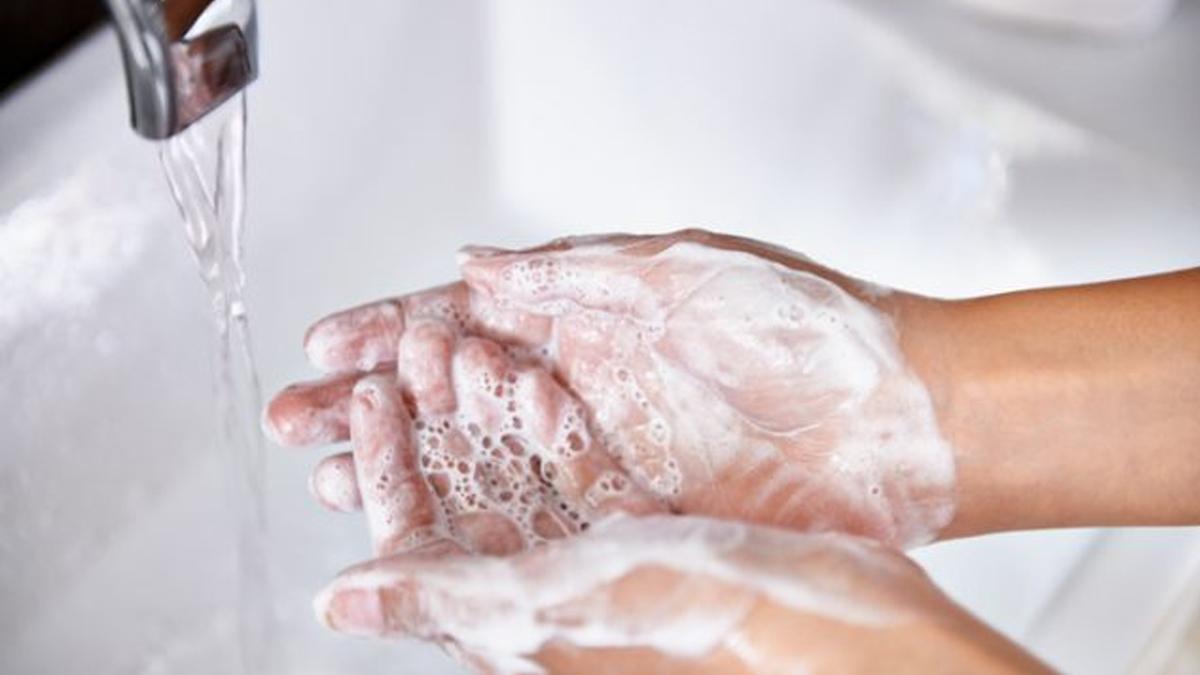From Our Sick Bay

IS YOUR CHILD WELL ENOUGH TO ATTEND SCHOOL?
As we all know, attending school is vitally important to all students, BUT it is also important to know when your child is not to attend school due to illness. This can be very difficult at times for parents to judge, especially with COVID around.
As we are aiming to build resilience in all of our students, we want them to learn to put up with minor health issues. If a child is continually attending the first aid room complaining of minor things, it’s usually for one of two reasons: they want to miss out on class time OR they are anxious about something.
We will be in touch with you if your child is a regular visitor to the first aid room.
As a school, we have the responsibility to care for all students by preventing outbreaks of any contagious illness. In doing this, we need students to stay at home when the following has occurred:
-Testing POSITIVE to a Rapid Antigen Test the night before or on the morning of school. You must keep your child at home. Once there are no symptoms, your child can attend school again.
-If your child has vomited at home, please keep your child home from school for a full 24 hours from the last vomit. Many students are sent home again after coming to school due to vomiting in the classroom after they arrive. This spreads the germs and greatly disrupts the classroom and learning of other students.
- If you need to administer Nurofen or Panadol to your child in the morning before school, then your child is unwell for school. These drugs wear off around lunch time and the student starts to feel unwell again. These drugs camouflage underlining illnesses and the germs can still spread.
-If your child has had diarrhoea within the last 24 hours, stay home. Click on the link below from the Department of Health guidelines for the full fact sheet.
http://www.health.vic.gov.au/edfactsheets/downloads/gastroenteritis-in-children.pdf
-Above average temperature (or fever) The average temperature for a child is: 35.9–36.83°C. Return to school when the temperature is back to normal (usually 24 hours later).
-Contagious diseases or illness (eg. hand foot and mouth, measles, mumps, chicken pox etc). Please inform the school and then get your doctor's approval before attending school again.
Please discuss personal hygiene with your child. Remind children to cover their mouth and nose when they cough or sneeze, dispose of any tissues in the bin and wash their hands properly and regularly.
If your child has been prescribed antibiotics that are to be administered three times per day, these can be administered at home.
The first dose can be administered between 7am – 8.30am, the following dose can be administered between 3.45pm – 4.30pm. Then the last dose can be given at 8pm or before bed.
Please be aware the school is not allowed to provide Panadol to students.
If your child becomes unwell at school, you will be contacted and required to arrange for your child to be picked up within a reasonable timeframe.
While a child may feel better at home, if they come back to school too early, they will fall into a heap quickly due to going back into a busy classroom. If you have to give them Panadol before coming to school, then they’re not well enough to come back.
Thank you for supporting these procedures and helping to contain illnesses and keep our school community healthy.
HAND WASHING
Washing hands effectively is the number one way to stop infections in its tracks. In fact, it can prevent about 30% of diarrhoea related sickness and about 20% of respiratory infections. In regards to helping stop the spread of COVID-19, washing hands is highly important too.
BUT … did you realise how important it is to wash your hands after eating too … to prevent the spread of potential allergens for other who have allergies. We, here at Murrumbeena Primary School, are educating our students about its importance to help other students who have allergies.
It sounds so simple and we do it every day, however, many adults and children don’t follow best practice and are spreading disease and allergens unknowingly. It is more than just running your hands under water for a few seconds.
Here are a few tips you should follow to make sure you are washing your correctly.
- Use soap and running water
- Rub hands together with lather for at least 20 seconds, ensuring you rub between your finger, under nails and the backs of your hands.
- Rinse your hands well under running water.
- Dry thoroughly with a paper towel that you then dispose of in the bin.
- If soap and water are unavailable use hand sanitizer which contains at least 60% alcohol to clean hands.
ASTHMA
All Grade 3 -6 students who require Ventolin and have an asthma plan will be required to carry their own Ventolin and spacer in their school bags.
Students in Grades 3 – 6 will administer their own first dose of Ventolin in their classroom instead of sick bay.
If the students require further Ventolin – they will be sent down to sick bay for Amanda to monitor.
This process will allow students
- To be more independent of their own asthma
- Have fewer interruptions during class time
- Have Ventolin with them to and from school
- Able to administer Ventolin before sport.
Please have your child’s Ventolin and spacer in their school bags.
If you have any questions or concerns about this process, please contact Amanda on Amanda.allan2@education.vic.gov.au
or 0412 329 605
ALLERGIES AT MURRUMBEENA PS
There are currently 25 students who have either allergies or are anaphylactic to an array of foods and grasses.
We are not a nut free school, but it would be lovely if we could all be 'Allergy Buddies' to help those who have an allergy live a safer life. Being an 'Allergy Buddy' means that washing hands correctly is super important. We also need to ensure that rubbish is placed in an appropriate bin.
At present we have students who have allergies to the following foods;
NUTS
(Peanuts, Cashews, Walnuts, Pecans, Pistachio, Brazil, Hazelnuts and Macadamia Nuts)
- Milk
- Egg
- Wheat
- Shellfish
- Oats
- Buckwheat
- Kiwi Fruit
- Watermelon
- Lentils
- Chickpeas
- Soy Products
- Legumes
- Dairy
- Peas
- Sesame
- Figs
- Honey Bees
- Sheep and Goats Cheese
- Grasses
- And even Guinea Pigs!
This week you will receive a note letting you know what allergies are in your child’s classroom. Please be mindful when packing your child’s lunch and snacks and have the allergies in mind.
If you are thinking about birthday treats (e.g. cupcakes) to hand out to the class this year, please note these will be given out at the end of the day and taken home. Other ideas for birthday treats could be stickers, a pencil or something non food related just to be on the safe side.
Thank you for considering these issues for our 'allergy' students and if you have any questions or queries, please don’t hesitate to get in touch with me via email at Amanda.allan2@education.vic.gov.au or on 0412 329 605.
Amanda Allan
First Aid Officer / Library Tech

